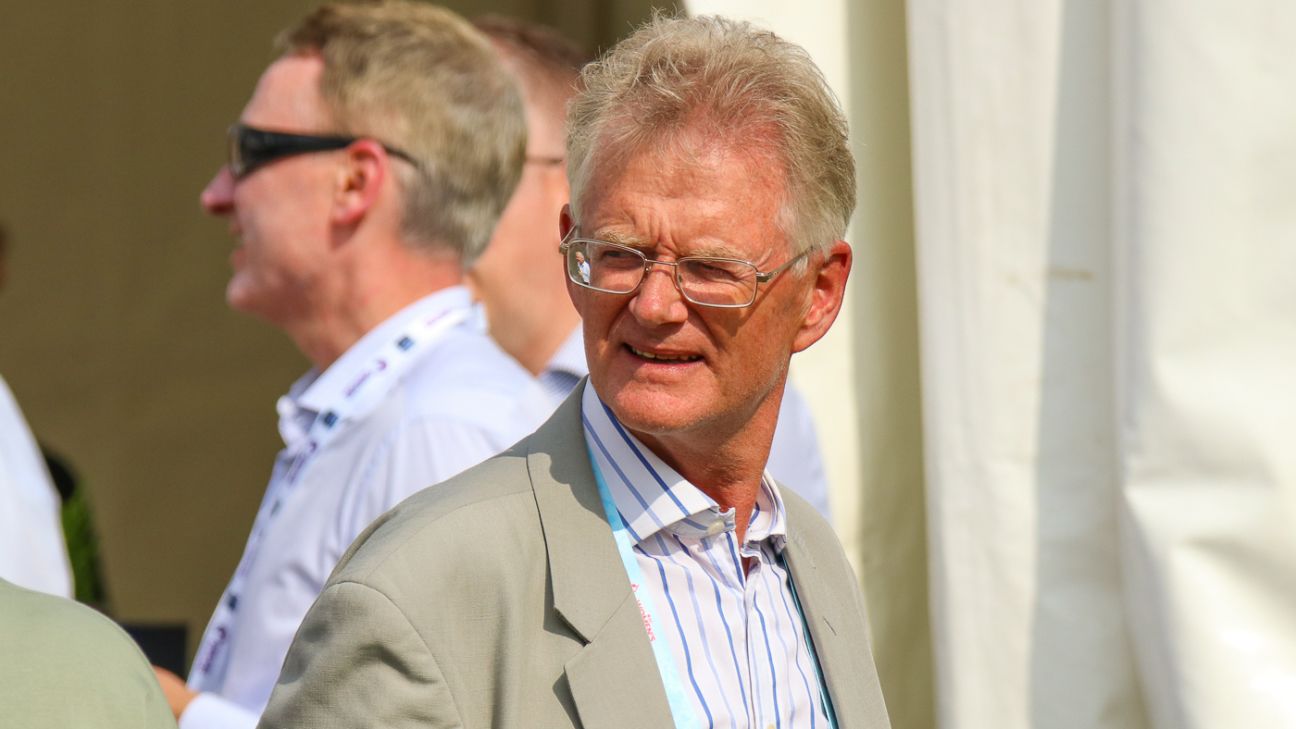Former Cricket Scotland chair Tony Brian has raised “serious concerns” over a damning review which has called into question the organisation’s culture and attitude towards women.
But he urged those reading the review “to look at the conclusions with high degree of caution as some lack the supporting investigative work and evidence required”.
“I fully recognise that some staff in Cricket Scotland were very unhappy in their work in 2021, something I deeply regret,” Brian said in a statement on Wednesday. “While clearly acknowledging those, I do however have serious concerns with some of the conclusions reached in the McKinney review, its selective use of interviewees and its admitted absence of investigative rigour.
“Firstly, the review’s conclusions are based principally on questionnaire feedback from 21 existing staff (just over half of the 41 current staff) and three former staff who McKinney, very surprisingly, allowed to be nominated by an interested third party. Other former staff have been excluded from the review for reasons which are not explained – their voices have therefore not been heard.
“Secondly, McKinney used a methodology called a ‘Neutral Assessment’ defined as: ‘an informal fact- finding process, generally used to explore areas of concern or to explore current cultures. It is not an investigation’.
“Having acknowledged that investigative work was not undertaken, the review then ignores that obvious limitation and goes on to draw conclusions on various issues based on the perceptions and feelings of the survey respondents. No attempt has been made to gather readily available evidence from others who were close to the individual issues.”
The McKinney report analysed behaviours, cultures and practices within Cricket Scotland, both prior to the publication of the Changing the Boundaries report in 2022, and in the two years since. Its six key themes covered culture and inclusion, leadership, general behaviours, employment practices and wellbeing, psychological safety and sexism and misogyny. Nine recommendations have been developed, with its priorities centred around general behaviours, and sexism and misogyny.
“If they had spoken to the relevant people, they would have understood that between 2016 and 2023 Cricket Scotland grew women and girls’ playing numbers in Scotland many times over,” he said. “In 2015 there was a tiny number of a hundred or so players, and the women’s game was at serious risk of dying. That number has risen to a sustainable base of approaching 1,000 women and girls’ participants across all formats in 2023. And that was despite two years of very restricted development activity during 2020 and 2021 due to Covid.
“Having acknowledged that investigative work was not undertaken, the review then ignores that obvious limitation and goes on to draw conclusions on various issues based on the perceptions and feelings of the survey respondents.”
Brian took issue with the McKinney review
“As well as much better participant numbers, Scotland now has a much higher quality of representative player with one Scottish player playing in the biggest women’s domestic competition in the world (the Indian Women’s Premier League) and eight Scottish players appearing in the Hundred (the top level of the English domestic game) – performance standards that are light years away from 2015.
“These improvements were as a result of a long-term strategy established in 2016/17 which invested in the essential building blocks of club and school structures, of coaching expertise, of a range of playing opportunities and of a wider and deeper talent pool, all to create a sustainable and long-term future for women and girls’ cricket. Taking the simple investigative steps described above would quickly have demonstrated to McKinney the true position.”
And Brian refuted claims by a respondent contributing to the McKinney review that an investigation into allegations made in 2021 was “botched”.
“The investigation referred to was carried out to conclusion robustly and in detail by a panel of two with relevant skills,” he said. “If McKinney had taken the trouble to speak to those involved, it would not have left a wholly misleading impression on such an important point.”
But, upon its release, Cricket Scotland CEO Trudy Lindblade described the McKinney report as “a damning indictment of the treatment of female players and staff within our organisation” and apologised “to every single person who was affected and let down by the governing body”.










